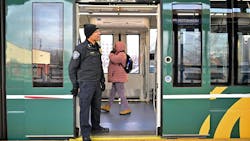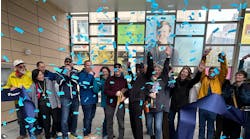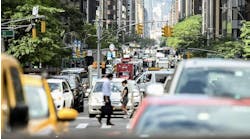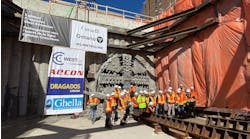Metro Transit light-rail passengers will see some changes on the Blue and Green lines this weekend — namely, two-car trains. It’s a taste of what’s to come this summer.
Beginning Saturday, the metro’s public transit authority is switching from three cars down to two on weekends only, unless higher ridership is expected for special events. The goal is to both reduce unnecessary wear-and-tear on vehicles during lower-demand periods and to cut down on maintenance needs at a time when Metro Transit is still hard-pressed to fill open maintenance positions.
An ancillary benefit?
Officials and passengers alike have long bemoaned the so-called “center car problem,” where smokers and others engaged in behavior that violates the Passenger Code of Conduct tend to gather to avoid drivers who operate, alternately, at either end of a three-car train. Transit officials said the two-car trains will be easier to clean between trips and increase the visibility of Metro Transit police, trainees, Transit Rider Investment Program agents and other outreach workers.
Beginning June 15, Metro Transit will use both two-car and three-car trains interchangeably seven days per week, based on demand. The goal, by August, is to run trains every 12 minutes most of the day, up from the current 15-minute service schedule, with the hope of growing service.
Shorter trains pull deeper into the departing ends of stations, so passengers will be advised through recorded announcements and signage to position themselves accordingly on platforms. Priority seating is reserved for seniors and customers with disabilities.
Other changes
Other changes are lining up.
Metro Transit has begun posting bus and train car numbers in larger letters inside vehicles, making it easier for passengers to identify where they are when they text Metro Transit to silently report concerns at the non-emergency line: 612-900-0411.
The transit authority is working with Cubic Transportation Systems of San Diego to upgrade all of its farecard readers for contactless debit and credit card payments. New York City, Chicago, the San Francisco Bay Area and other transit authorities have already adopted the technology, which allows passengers to download their credit card onto Apple Wallet or Google Wallet and pay their fare with a quick tap of their smartphone, without having to buy a ticket or even a physical farecard.
“The easier it is to use something, the better chance you’ll use it,” said Matt Newsome, a vice president with Cubic, on Tuesday.
The software upgrade for what’s known in the transit industry as an “open payment” system could be complete by late 2026, though no firm schedule has been established.
©2024 MediaNews Group, Inc. Visit at twincities.com. Distributed by Tribune Content Agency, LLC.



